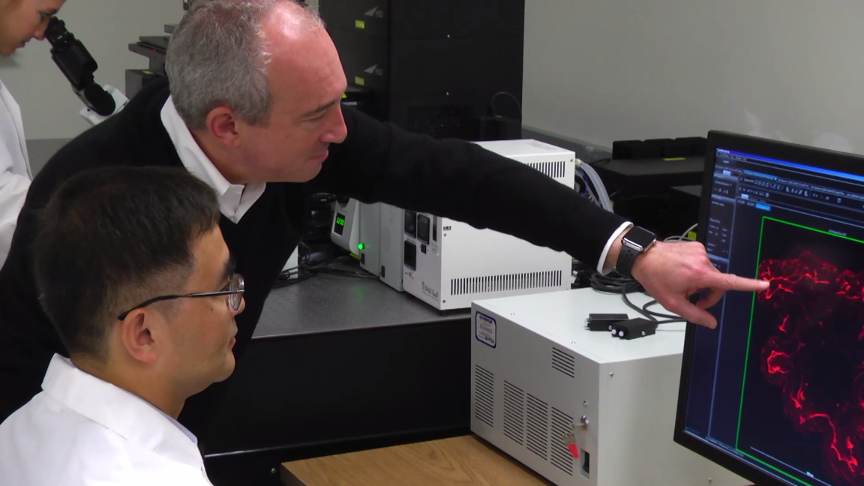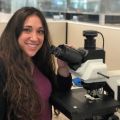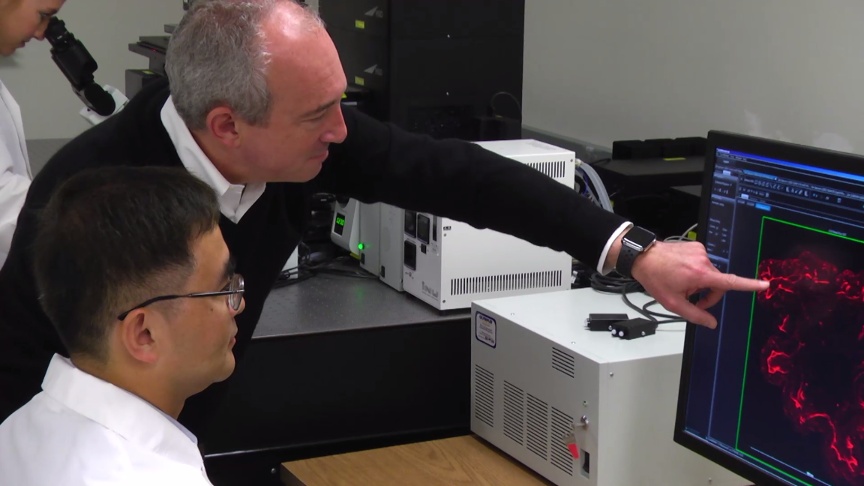Advances in microscopy technologies are enabling researchers to observe cancer cells in 3D and 4D using powerful systems capable of computing large amounts of imaging data. This affords scientists deeper insights into cellular structure and behavior, which can provide benefits down the line, such as helping improve cancer treatment and precision oncology.
Transdisciplinary Collaboration Provides a More Complete Picture for Cancer Treatment
Olympus has formed an Innovation Partnership in multiscale bioimaging with the University of Southern California (USC). This collaboration combines Olympus technology with the expertise of two renowned labs at USC, the Lawrence J. Ellison Institute for Transformative Medicine and the Translational Imaging Center (TIC). The USC-Olympus Innovation Partnership furthers our mission to help people stay healthy by contributing to the advancement of multiscale research into cancer prevention, diagnosis, and treatment through precision medicine.
Sharing Tools and Expertise to Foster Discovery
Ensuring effective collaboration among the USC-Olympus Innovation Partnership stakeholders, the TIC and the Center for Applied Molecular Medicine (CAMM) are consolidating their leading-edge Olympus imaging systems and moving into the new state-of-the-art Ellison Institute building.
Uniting these research groups under one roof aligns our mission with the Ellison Institute’s mission to change cancer treatment and prevention through transdisciplinary, patient-centered, and agile research programs. Using innovative Olympus technologies, they’ll study the behavior of cancer cells, how and why the cancer grows, and how it interacts with the whole system, with the goal of helping improve clinical care by increasingly personalizing it to the patient.
Watch the video on the partnership between the Ellison Institute, CAMM, and TIC, highlighting the relationship between imaging analysis tools and precision cancer medicine.
A Deeper Understanding Is “Redefining What’s Possible” on a Clinical Level
The partnership is guided by the scientific leadership of two internationally recognized leaders: trailblazing oncologist and biomedical entrepreneur David Agus, M.D., and world-leading optical and imaging researcher Scott Fraser, Ph.D. Together, with their respective teams, they are pioneering the development of new technologies to enable 3D and 4D imaging of single cells, organoids, and tumor ecosystems.
“In the Translational Imaging Center, we view one of our main goals as redefining what’s possible,” says Dr. Fraser. “The work that’s happening in this partnership really enables us to ask questions about cells in their normal environment, guided by the information needed for the best clinical insights.”
Hope for the Future for People Living with Cancer
Dr. Agus offers this hopeful prognosis, “The idea of using deeper imaging, the idea of actually getting much more detail from the images and using that to better understand what is going on is powerful. And, so, we now have the ability, through imaging technology, of learning so much more. And it’s a combination of the imaging technology with the ability to interpret that data that I think is going to yield one of the biggest breakthroughs in how we treat and understand cancer.”
Related Content
USC-Olympus Innovation Partnership
Collaboration across Borders: Medical Centers Join Forces to Advance Cancer Research


